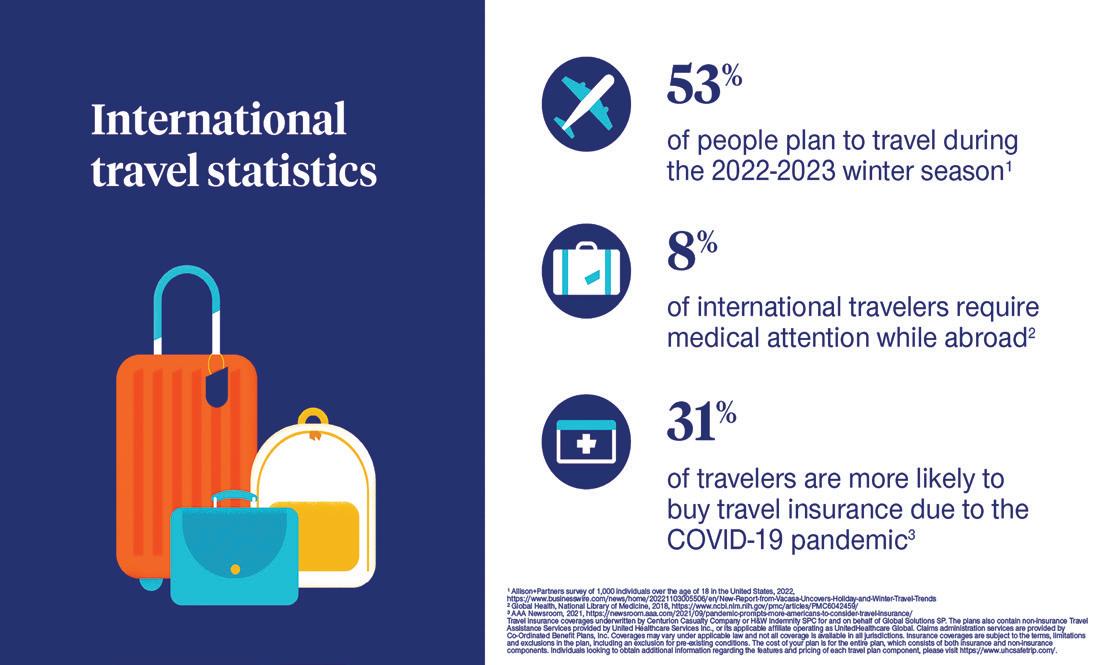
10 minute read
Obesity Care Week Begins as Report Reveals that Nearly 50 Percent of African Americans Have Obesity
By Stacy M. Brown, NNPA Newswire Senior National Correspondent
but it also increases the risk of complications from COVID-19.
Advertisement
According to a recent study of hospitalized patients in the US, obesity may also predispose patients to getting the virus and is the strongest predictor for COVID-19 complications.
Unfortunately, African Americans are also disproportionately affected by COVID-19. According to the CDC, 33% of those hospitalized with the virus were African Americans, compared to 13% of the US population.
I Have Lupus, What Are My Treatment Options?... continued
Corticosteroids are great at apidly suppressing inflammation. However, they can be extremely potent drugs with side effects, so doctors will seek the lowest dose to achieve the desired benefit or use them in combination with less potent drugs.
Immunosuppressives
Immunosuppressive therapy restrains the overactive immune system by blocking the production of immune cells. However, the risk for side effects increases with the length of treatment.
B-lymphocyte stimulator (BLyS-specific inhibitors) antagonist indicated for adults with moderate to severe systemic lupus erythematosus (SLE). The approval represents the first new treatment for generalized SLE in more than a decade and is the result of significant seminal research funded originally by the Lupus Research Alliance.
In addition to treatments for lupus itself, you may also take additional medications to treat lupus-related problems such as high cholesterol, high blood pressure or infection.
Why are new treatments needed?
Inequities in access to and quality of care result in poor overall health and many chronic diseases, such as obesity and diabetes.
This can affect individuals’ chances of getting COVID-19.
Obesity Care Week 2023
(OCW) kicked off on Monday, Feb. 27, with a focus on the disproportionate impact of obesity on communities of color.
Health officials responsible for OCW said racial and ethnic minorities have a higher rate of chronic diseases. African Americans have the highest rate of chronic diseases.
According to recent data, almost 50% of African Americans have obesity, and approximately 4 out of 5 Black women have overweight or obesity.
The causes of obesity are complex, and a person’s access to healthy food, safe places to exercise and play, stable and affordable housing, access to quality health care, and social attitudes about body weight all play a role in whether a person will have obesity.
However, communities of
For example, in the United States, only 8% of African Americans live in a census tract with a supermarket, while 31% of white Americans have one.
This means that minorities more often shop in small stores or bodegas or eat at fast food restaurants. These places usually have less fresh food and more processed food.
Cultural attitudes about body weight also play a role, with non-Hispanic white women more satisfied with their body size than non-Hispanic Black women, and Hispanic women more interested in losing weight and eating healthy.
Evidence shows that the African American population has less of an impact on existing weight loss interventions, with
Five Ways to Help Protect Your Health During Spring Travel
By Dr. Amit Arwindekar, Medical Director, UnitedHealthcare Global
Black men and women achieving smaller weight losses.
Founded in 2015, Obesity Care Week has a global vision for a society that values science and clinically based care and understands, respects, and accepts the complexities of obesity. color face unique challenges in each of these areas, health officials stated.
Health officials noted that this suggests that intensive behavioral programs result in lower levels of adherence in Black people than whites.
Founded in 2015, Obesity
Care Week has a global vision for a society that values science and clinically based care and understands, respects, and accepts the complexities of obesity.
Organizers have focused on changing the way society cares about obesity and have worked to empower individuals by providing affordable and comprehensive care and prevention programs, increasing awareness of weight bias, and working to eliminate obesity.
Researchers said obesity not only affects overall health,
The communities in which African Americans live may place them at greater risk for developing chronic illnesses. For example, they may not have access to healthy foods or safe places to play or exercise.

For people who try to eat healthy, living in a food desert means that they must go to a grocery store.
They often must do this by public transportation.
These disparities need to be addressed so that all communities have the resources and support they need to achieve and maintain a healthy weight.
“Obesity Care Week 2023 highlights the need for comprehensive and inclusive approaches to obesity care that consider the unique challenges faced by communities of color,” organizers stated.
Five Ways to Help Protect Your Health During Spring
Travel ...continued providing access to thousands of workouts, from high-intensity interval training to yoga, and meditation too. Get protection. Prior to traveling, take time to review your health insurance plan and confirm what it covers. Some health plans only offer network access to local health care professionals, and most insurance policies — including original Medicare — do not extend overseas or across the border. For additional protection
With spring break coming up soon, many California residents may be planning a getaway to visit with family and friends in other parts of the country or to explore an international destination.
While spring-time travel can be a chance to reconnect with loved ones or visit someplace new, it can also present challenges. Any number of factors can lead to packed airports, and bad weather can cause annoying delays and cancellations. What’s more, nearly one in 10 international passengers end up requiring medical attention while traveling abroad. It all highlights the importance of pre-travel preparation.
To help minimize potential stress and reduce the risk of health-related issues while away from home, here are five tips to think about:
Anticipate potential health issues. Consider a wellness checkup with a primary care doctor before departure to talk about travel plans, including the possible need for vaccinations. Packing a portable health kit may also prove helpful, so consider including items such as antiinflammatory pain relievers, first-aid supplies, earplugs, sunscreen and sunburn relief, motion-sickness remedies and insect repellents.
Refill medications. Before any trip, it is a good idea to refill medications and pack extra doses in case of travel delays. Some pharmacies may have limited hours during peak holidays, which could make a refill more difficult. When traveling by airplane, always pack medication in carry-on luggage to help ensure access. For international travel, be sure to check prescription drug restrictions for each country to help avoid the risk of medications being confiscated upon arrival. Reduce jet lag. People taking to the air can face the possibility of jet lag. To help avoid this, get lots of rest before a trip, and drink plenty of water before, during and after flights to reduce the dehydrating effects of cabin air. Then, make a point to get plenty of sunlight during the day, which can help to reset the body’s internal clock and promote better rest at night. Proper sleep can help strengthen the immune system, better regulate appetite and aid in recovery from injury.
Stay active. Studies have shown that exercise is a great choice for helping to reduce stress and improve mood. Incorporating physical activity into sightseeing is one strategy for staying active, as many places offer walking or bike tours that can be relatively affordable, informative and fun. Using a fitness app may also help, abroad, travel medical plans may cover the cost of medical care and offer additional services. These may include foreignlanguage translation, direction to appropriate facilities or help with evacuation to other facilities and coordinated care with local health providers. Whether traveling for work or leisure, considering these tips can help avoid health issues, promote well-being and protect against unexpected complications.

I Have Lupus, What Are My Treatment Options?
B-lymphocyte stimulator (BlyS) protein inhibitor, a type of biologic medication, can help lower the number of abnormal B cells that create antibodies. Benlysta® (belimumab), one of two medications now approved specifically for lupus treatment, is a BLyS-specific inhibitor. Belimumab was approved in 2011 as a treatment for general systemic lupus erythematosus and in 2020 as a treatment for lupus nephritis.
Voclosporin Lupkynis™ (voclosporin) is a calcineurin inhibitor used as an immunosuppressant medication. It was approved by the U.S. Food and Drug Administration for the treatment of lupus nephritis in January 2012.
Type I interferon receptor antibody
In August 2021, the U.S. Food and Drug Administration (FDA) approved anifrolumabfnia (Saphnelo™), a first-inclass type I interferon receptor
Just two drugs specifically for lupus have been approved by the U.S. Food and Drug Administration in more than 60 years, with over a decade in between. Because lupus affects each person differently and the symptoms vary widely, no one medication can work for everyone.
A variety of medications that target different mechanisms involved in causing the disease as well as options with fewer and less severe side effects are critically needed.
In order to get the proper treatment to effectively treat your lupus, it is important to work with members of your health care team. Ultimately, your treatment plan will depend on your age, symptoms, general health, and lifestyle. Keep in mind that it can take months – or even years – to find the right combination of medicines to control your symptoms. Your medication may also need to be adjusted as your symptoms and your needs change, so it is important to have regular exams and lab tests to track your lupus.
Mielle Organics Joins P&G Beauty In A Major Move For Black Entrepreneurs Serving Black Women...continued
from page 6 and a subsequent nine-figure investment from Berkshire Partners at a time when less than one percent of Black women secured $1 million in funding.* “This moment was made possible by our hardworking team, the visionaries who came before us, and the trust and partnership with investors like New Voices and Berkshire Partners,” said Ms. Rodriguez. “Now we can pay it forward by continuing the cycle of investment and mentorship through Mielle Cares.”
“Monique, Melvin and their entire team have done an incredible job building Mielle Organics into a leading hair care brand beloved by millions of Black women, and we’re excited to help them continue their success,” said Lela Coffey, vice president of P&G’s multicultural hair care business.
“P&G Beauty’s role will be to support the Mielle Organics team with what they need to achieve their vision – including increased access in Black and Brown communities and investing in research and innovation – while enabling the core tenets of their success to continue as they are today.”
“P&G Beauty is a best-inclass organization, and we are excited that this partnership will bring additional resources so that Mielle can continue to serve our incredible customers with rapid innovation and greater reach in the community,” Ms. Rodriguez said. “Melvin and I will continue to lead Mielle with the focus on excellence, customer commitment and integrity that have been the core of our brand since day one nearly nine years ago.”
If you have lupus, you’re probably taken aback by the fact that it is incurable, but the good news is there is no shortage of treatment options, and with the right treatment you can live a healthy life. Today, doctors have more choices to help patients manage lupus effectively because the range and effectiveness of treatments have increased in recent decades.
What are your treatment options?
Because there is no cure for lupus; treatment focuses on managing symptoms, stopping flare-ups, lowering disease activity, preventing organ damage and improving quality of life.
Looking for the right treatment, but don’t know where to start?
The Lupus Research Alliance breaks down what each treatment is:
Nonsteroidal anti- inflammatory drugs (NSAIDs) Nonsteroidal antiinflammatory drugs (NSAIDs), which decrease inflammation, are often used to treat people with joint or chest pain, fever and swelling. Some NSAIDs, like ibuprofen and naproxen, are available over the counter, while others require a doctor’s prescription. They can be used alone or in combination with other types of drugs, but before you do this, it is wise to consult with your doctor to ensure it is safe.
Antimalarials While antimalarial drugs prevent and treat malaria, they’re also useful for lupus. A common antimalarial for lupus, hydroxychloroquine, may be used alone or in combination with other drugs to treat fatigue, joint pain, skin rashes and lung inflammation. Clinical studies have found that regular use of antimalarials may prevent flares from recurring.
Corticosteroids
Corticosteroids are a family of drugs related to cortisol, a natural anti-inflammatory hormone.
Are We Done With Masks? Three Experts Review the Latest Findings...continued
“The results of the study were clear in that surgical masks, N95 masks, did not make a difference in the transmission of Covid or the flu,” Hakim said.
“The mask is a small piece of a much bigger shield that we have against COVID. I would use the bigger piece of the shield, which is a vaccine, and I would not recommend masks for the general population,” Hakim added. Like Schaffner and Gandhi, he recommended masks for vulnerable populations.
Kids and masks
He said the Cochrane review looked at a few studies that were specifically for children, and those results were even more definitive.
“Kids are the worst at keeping things on. You’d be lucky if you have a kid with their pants on at the end of the day let alone having a mask on that increases humidity, increases difficulty of breathing, and it’s just overall uncomfortable,” Hakim said.
They’re constantly touching things, wiping their nose, taking from page 2 their mask off to eat and drink. They share pencils and pens that have been in other kids’ mouths. And teenagers are horrendous at being compliant, Hakim added.
Like Schaffner and Gandhi, Hakim recommended wearing masks for vulnerable people.
“If we could provide masks particularly to those high-risk people, I think that might … increase the trust because we’re not imposing the masks on them, but making them available, so that people feel more comfortable and reassured that it’s a good thing to do,” says Hakim.
All three speakers agreed that as studies like the Cochrane report reveal new findings about the efficacy of preventive care, these should not diminish public trust.
“One of the most difficult things for the general public to understand is that we will give you our best advice today but if we learn something tonight, we may have to change that advice tomorrow, and that this is an ongoing process,” Schaffner says.





